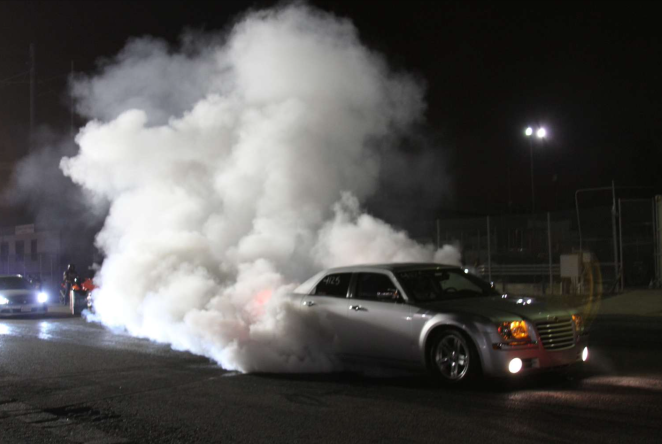Federal regulators want state and local government to start tracking their transportation sector emissions — but because of Congress's flawed infrastructure law, they can't do much to force communities to reduce those emissions, never mind doing so in ways that would address the other damages of car dependency, experts say.
Last Friday, the Federal Highway Administration formally proposed a new rule that would require DOTs and metropolitan planning organizations to "establish declining carbon dioxide targets, and to establish a method for the measurement and reporting of greenhouse gas emissions associated with transportation."
Many advocates celebrated the news as a positive, if painfully overdue development that would force transportation leaders to be transparent about the climate impacts of their mobility policies for the first time since climate change became widely known more than 30 years ago. Less than half of states have even adopted greenhouse gas emissions targets, and fewer have specifically pledged to reduce emissions in the transportation sector, which is the largest contributor to climate change nationwide.
"Until now, we have had a highly permissive program with almost no oversight," said Beth Osborne, director of Transportation for America "This was our top ask for administrative action; my reaction when I heard about it was, 'finally, thank heavens.'"
“The road building lobby is coming out swinging against the proposed FHWA rule”
— Douglas Ritz (@douglasritz) July 11, 2022
Protip:
The $1.75 trillion dollar infrastructure bill will likely be the largest contributor to GHG in the last 200 years.
Of course, being required to set a goal is not the same as being required to achieve it — and unfortunately, Congress is the only body that can require DOTs to do that. The Infrastructure Investment and Jobs Act, which President Biden signed last year, guarantees state DOTs historic (and unrestricted) road funding, regardless of whether they use it on projects that reduce emissions or not — never mind whether they erode Americans' dependence on private automobiles in the process.
Study after study has shown that the U.S. cannot meet its transportation sector climate targets through vehicle electrification alone — and EVs alone, of course, do absolutely nothing to combat traffic violence, congestion, the devastating costs and barriers to opportunity created by a society where vehicle ownership is a virtual necessity, and the pollution emitted by cars even when they don't have tailpipes.
Still, Osborne says that shining a light on transportation agencies' climate progress — or lack thereof — will be a powerful tool to hold policymakers accountable, and a critical first step towards more fundamental reforms.
"I’m disappointed in the Infrastructure Investment and Jobs Act, too," Osborne added. "But that doesn't mean there’s nothing we can do. This rule is important to give taxpayers, policymakers, and advocates alike information about how this historic amount of money is being spent. If a state says, 'We’re going to reduce carbon emissions by this much, and we're going to rely on vehicle electrification to do it,' now we can say, 'That’s pitiful, and we expect more of you.'"
Oh dear! Does the WSJ need some help actually reading/understanding the DOT PROPOSAL? Happy to help.
— @annELPC (@MesnikoffAnn) July 11, 2022
Until the federal Department of Transportation requires states to set ambitious targets to reduce greenhouse gases and vehicle miles traveled — something Osborne says she doesn't believe is "remotely within the realm of possibility" under the current administration and a deeply divided congress — that may be the best sustainable transportation advocates can expect for now.
Considering how much pushback the proposed rule is already getting from conservatives like Sen. Shelley Moore Capita (R-W.Va.) and highway builders, though, Osborne says it's still a brave move — and a modest but important first step on a much longer journey.
"Sometimes we get frustrated when every action isn’t everything, and I think that’s why we so often get nothing," she added. "This, as gentle and hesitant a step forward as it is, is important, it is what we have available, and it's going to be a fight. If we can’t get this done, we have no chance to change all the other things we're unhappy with."






